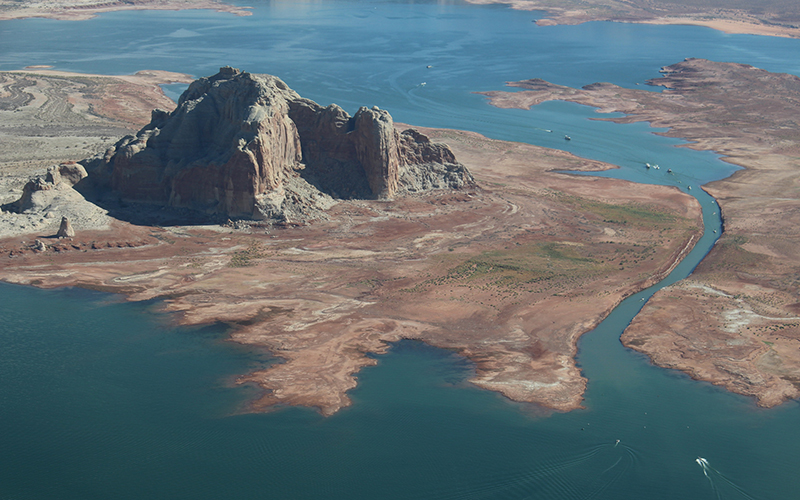SALT LAKE CITY – Utah officials are drastically scaling back hydroelectric power plans for the controversial Lake Powell pipeline, saying the move will save taxpayers $100 million dollars on the proposed project.
“I think this was a good and wise decision,” said Eric Millis, director of the Utah Division of Water Resources. “We could simplify the process, we could reduce some costs, and we could minimize the environmental impacts from what they would’ve been.”
The proposed 140-mile pipeline would pump water from Lake Powell in southeastern Utah to the growing city of St. George.
The original idea was that the pipeline would help pay for itself by selling hydroelectric power.
But after federal officials voiced environmental concerns, the state decided to scrap the part of the plan that would have created two reservoirs to generate hydropower, and withdraw their application to the Federal Energy Regulatory Commission, which has acted as lead federal agency for the application process so far.
The state argues this will save money on the project, which it estimates will cost between $1.1 billion and $1.8 billion.
But Zach Frankel, executive director of the environmental protection group Utah Rivers Council, said the state’s claims of saving taxpayer money are nonsense.
The process behind the now-withdrawn application cost the state $37 million, according to Frankel, and was 10 years in the making. He also said the loss of revenues from hydroelectric power will make the pipeline more expensive to operate.
“They can no longer count the revenues from hydroelectricity generation that the state has been banking on to help lower the costs,” Frankel said.
State officials said the potential revenues from the power plant wouldn’t have equaled the cost to build it anyway.
